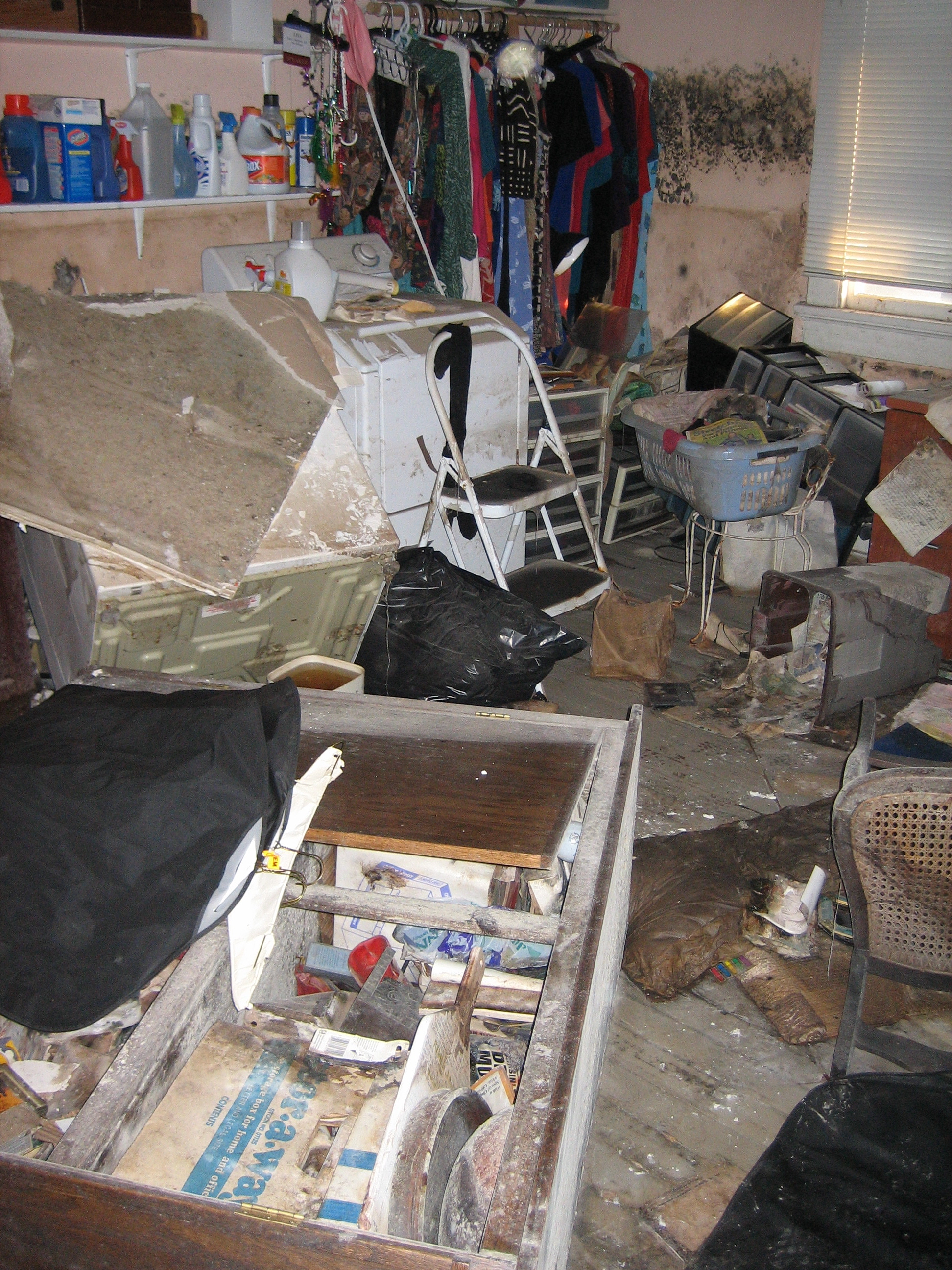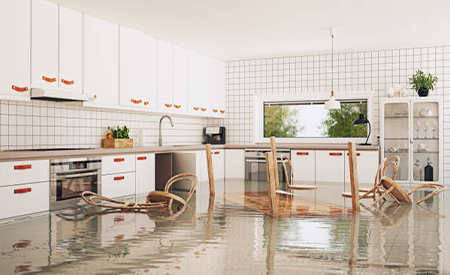The Process of Water Damages Clean-up: Guaranteeing Your Home Is Recovered Successfully
Water damage can be a challenging challenge for property owners, necessitating a thorough and structured clean-up process to bring back safety and security and functionality. damage restoration services. Following this, efficient water removal techniques play an essential role in alleviating further injury.
Examining the Damage
Upon discovering water damage, the primary step is to thoroughly examine the extent of the influence. This first evaluation is important, as it aids establish the necessary steps for efficient cleanup and remediation. Begin by examining the affected areas, consisting of walls, ceilings, floorings, and individual belongings, to determine the resource of the water invasion, whether from flooding, leaks, or condensation.
Recording the damage is crucial for both insurance policy claims and intending restoration efforts - damage restoration services. Usage photographs and composed notes to capture the severity of the damages, noting any type of affected structural aspects and products. Pay special attention to locations that might not be quickly noticeable, such as behind walls and under carpets, as concealed dampness can cause additional complications, including mold and mildew development
In addition, examine the timeline of the water exposure. Ultimately, an extensive assessment lays the foundation for a successful water damage clean-up procedure, ensuring that all affected locations are attended to efficiently and extensively.
Water Removal Techniques

Professionals usually use completely submersible pumps for larger quantities of water, which can quickly reduce flooding in basements or other impacted locations. For smaller quantities, wet/dry vacuums are frequently used to draw out recurring dampness from carpetings and tough surface areas. In addition, making use of mobile extractors permits for targeted elimination in restricted areas or locations with fragile products.
In instances of polluted water, such as sewage or floodwater, progressed removal methods may involve using biohazard devices to make certain safety and security and conformity with health and wellness guidelines. High-powered removal devices are important in lessening water retention in structural materials, which can lead to mold development and architectural degeneration if not dealt with immediately.
Eventually, the effectiveness of water removal strategies plays a crucial duty in the overall success of the water damage cleanup process, preparing for succeeding reconstruction efforts.
Drying and Dehumidification
When standing water has actually been successfully extracted, the following important phase in the water damage cleanup procedure is drying and dehumidification. This action is necessary to prevent additional damages and mold growth, which can happen within 24 to two days in wet atmospheres.
To attain efficient drying, customized equipment such as industrial-grade air movers and dehumidifiers is utilized. Air moving companies distribute air throughout damp surfaces, enhancing evaporation prices, while dehumidifiers reduce humidity degrees airborne, promoting a helpful setting for drying out. The mix of these tools makes certain that wetness is drawn out from floorings, wall surfaces, and furnishings, allowing them to completely dry completely.
It is very important to monitor the drying out process closely. Experts frequently use dampness meters to analyze the wetness web content in different products, making certain that all impacted locations get to appropriate dry skin levels. This thorough method assists to protect against covert wetness pockets that might lead to architectural damage or undesirable mold and mildew development.

Cleansing and Sterilizing
After the drying out and dehumidification phase is total, the following crucial action in water damages cleaning is cleansing and sterilizing the influenced locations. This procedure is vital to protect against the development of mold, bacteria, and various other pathogens that flourish in damp atmospheres.
The cleansing phase normally entails eliminating any kind of debris, dust, and impurities from surface areas using specialized cleaning up agents. For hard surface areas, a combination of soap and water or industrial cleaning items is commonly utilized. Soft materials, such as furniture and carpetings, may require extra substantial cleaning methods, consisting of heavy steam cleaning or deep removal techniques, to ensure thorough hygiene.

Sanitizing complies with cleansing, utilizing click for more info EPA-approved anti-bacterials to eliminate harmful bacteria. This step is essential, especially in areas that might have come into call with floodwaters or sewer, as these sources can present serious health and wellness risks.
Additionally, it is essential to attend to any staying smells, which may need using smell neutralizers or sophisticated strategies like ozone treatment. Appropriate cleansing and sanitizing not just recover the safety and hygiene of your home yet also prepared for effective remediation and repair services in succeeding stages of the water damage clean-up procedure.
Restoration and Repair Work

When the assessment is complete, restoration initiatives can start. This typically involves repairing or replacing broken products, making sure that all job abides with neighborhood structure codes and criteria. For example, if drywall has been compromised, it will need to be removed and changed with brand-new material. In Get More Info addition, flooring may require comparable focus, depending upon the level of water direct exposure.
It is important to engage seasoned remediation professionals throughout this procedure, as they possess the knowledge to handle intricate repair work efficiently. They can help minimize potential future problems, such as mold development or structural instability, therefore making certain a habitable and secure living atmosphere. Inevitably, effective reconstruction and repair work bring back the home's honesty and improve its total value.
Final Thought
Finally, the process of water damage cleanup is vital for recovering a home to its pre-damage condition. Each phase, from analyzing the damage to executing effective water extraction methods, adhered to by extensive drying, sterilizing, and essential repair work, plays a crucial role in guaranteeing safety and compliance with structure criteria. Reliable implementation of these actions not only alleviates instant damage however likewise boosts the lasting stability and worth of the building.
Water damages can be an overwhelming obstacle for home owners, demanding a careful and organized cleaning procedure to bring back safety and capability. Eventually, a detailed assessment lays the groundwork for a successful water damages cleaning process, guaranteeing that all impacted locations are addressed effectively and extensively.
Efficient water extraction strategies are vital in reducing damage and protecting against additional problems adhering to a water invasion occasion.In verdict, the process of water damages cleanup is critical for bring back a home to its pre-damage condition. Each stage, from examining the damage to implementing efficient water extraction strategies, followed by thorough drying out, official statement sterilizing, and necessary fixings, plays a vital role in making sure security and conformity with structure criteria.